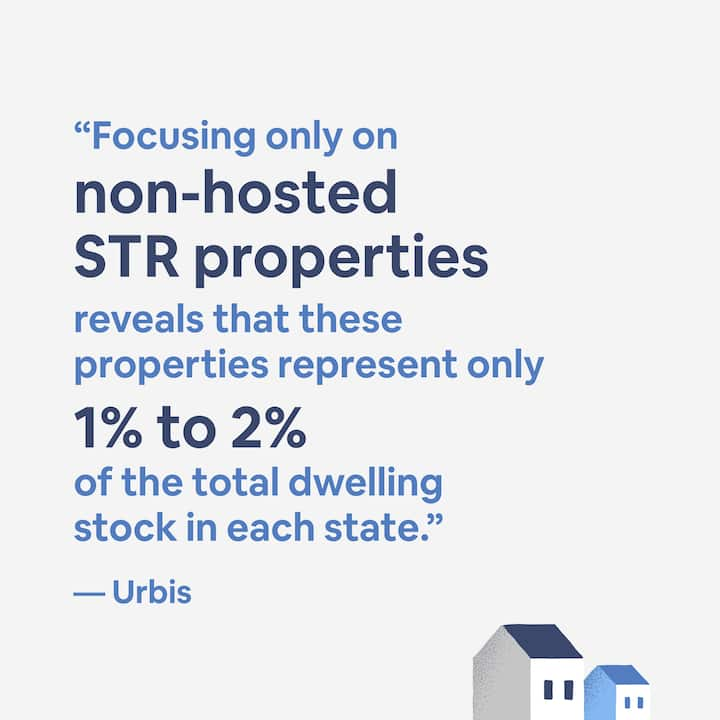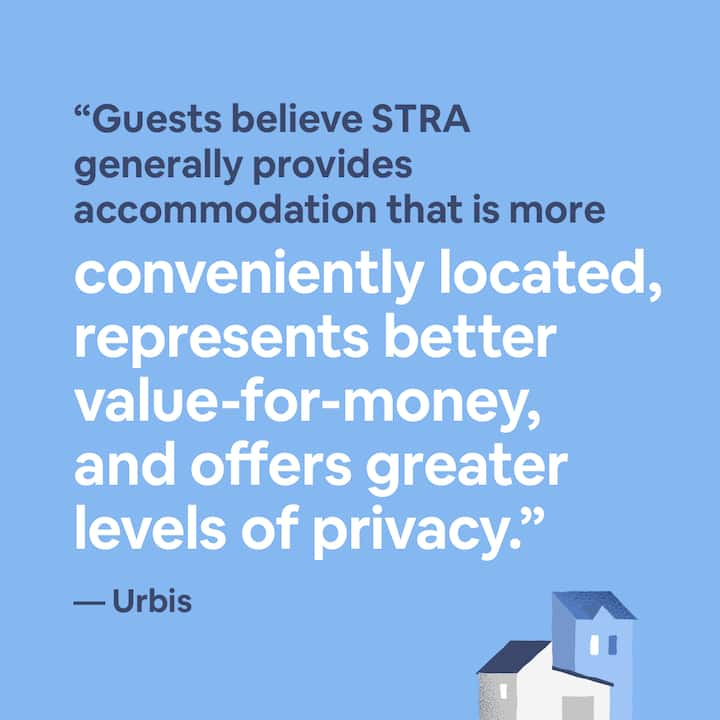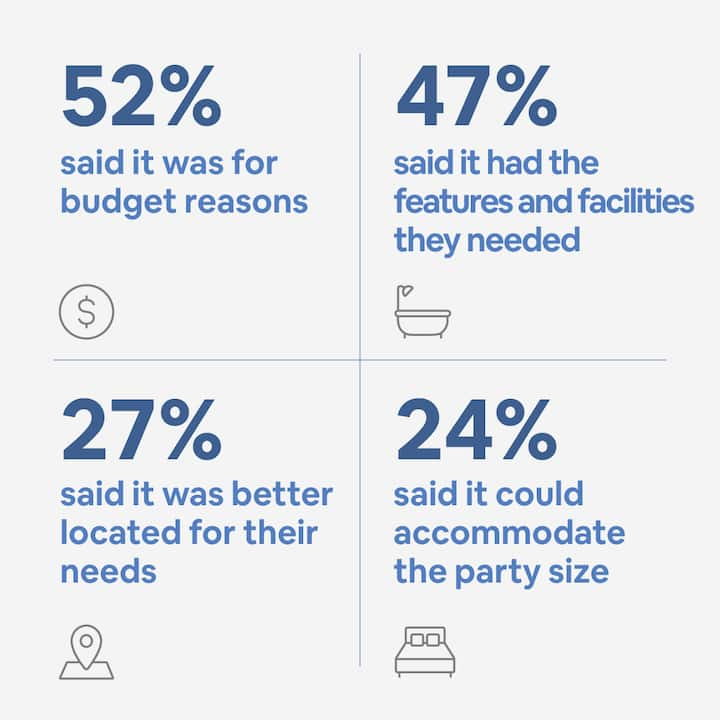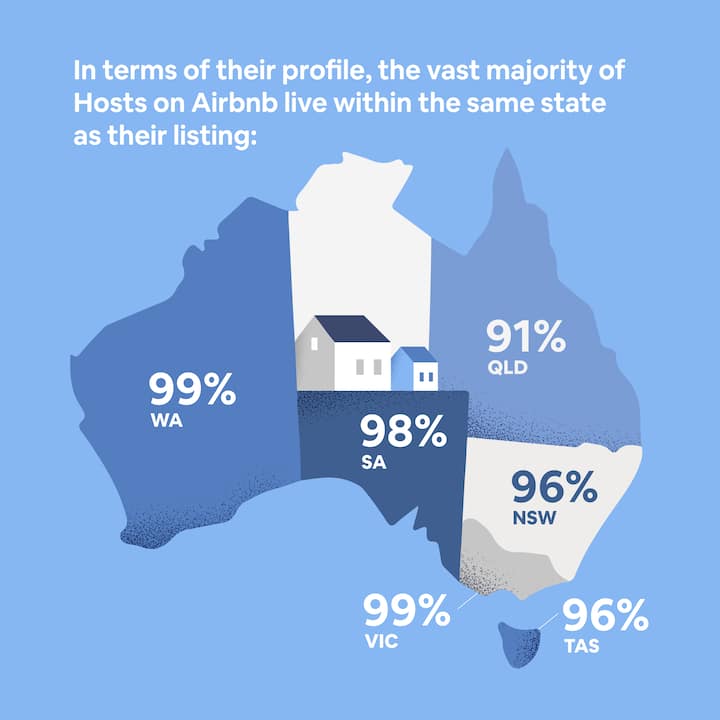

Short-Term Rental Accommodation and Housing in Australia
Australia is facing unprecedented challenges when it comes to housing. A range of factors alongside a once-in-a-generation pandemic, have placed immense pressure on our local housing landscape.Airbnb has teamed up with experts, Urbis, to better understand the role of short-term rental accommodation (STRA) in the housing market. The study also highlights the important part Airbnb plays in the Australian visitor economy.Using Airbnb data, Urbis has analysed six states around the country to examine the scale of impact including New South Wales, Victoria, Queensland, Western Australia, South Australia and Tasmania.
Australia is facing unprecedented challenges when it comes to housing. A range of factors alongside a once-in-a-generation pandemic, have placed immense pressure on our local housing landscape.Airbnb has teamed up with experts, Urbis, to better understand the role of short-term rental accommodation (STRA) in the housing market. The study also highlights the important part Airbnb plays in the Australian visitor economy.Using Airbnb data, Urbis has analysed six states around the country to examine the scale of impact including New South Wales, Victoria, Queensland, Western Australia, South Australia and Tasmania.
Key findings
Overall, analysis of STRA and housing affordability has found every location is different and STRA has no consistent impact on affordability.
Overall, analysis of STRA and housing affordability has found every location is different and STRA has no consistent impact on affordability.
Therefore, other factors must be driving affordability outcomes in Australia.
1 nga 1 faqe

Overall, even within locations with a higher proportion of housing used as non-hosted STRA, housing affordability varies significantly, indicating STRA has no consistent impact on housing affordability.
The role of STRA in Australia
Crucially, Urbis finds that STRA plays an important role for guests, Hosts and the wider community.
Our Hosts make vital contributions to local communities by sharing the spare or underutilised spaces. More guests can explore more locations across the country, with flow-on benefits to towns and cities.


A survey of our Host and guest community, carried out by Urbis, has revealed the following key insights.
A survey of our Host and guest community, carried out by Urbis, has revealed the following key insights.
Guests on Airbnb prefer to stay in short-term rental accommodation as they can find a listing that suits their particular needs and budget, or allows them to explore new parts of the country that otherwise have limited alternative options. When guests were asked their reasons for choosing STRA over other accommodation options:

Hosts on Airbnb share their homes for a range of reasons. While economic motivations are the most common, there are also social and wellbeing factors, such as meeting new people and sharing and learning about other cultures.


Airbnb is committed to being a collaborative partner to all stakeholders in Australia, helping to create jobs and disperse the benefits of tourism to more neighbourhoods and communities. While we may not be the root cause of housing pressures in most LGAs, we believe there is more we can do to help make a positive difference particularly in LGAs in which short-term rentals have a greater footprint.Contact us at australiapolicy@airbnb.com
Airbnb acknowledges the cultural Custodians and Traditional Owners of the lands and waterways on which we live, work and travel.